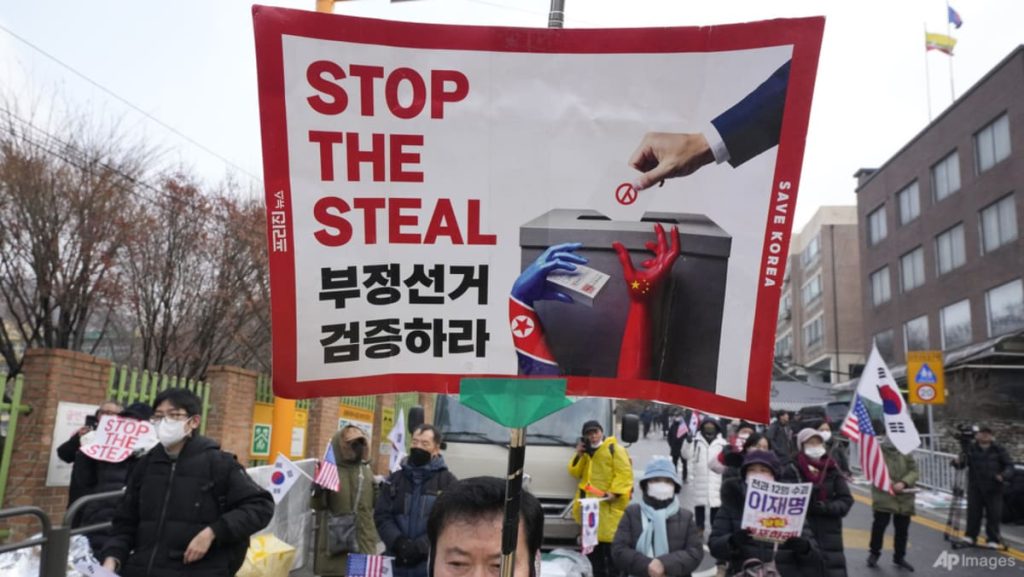The political landscape of South Korea continues to be dominated by the unfolding drama surrounding impeached President Yoon Suk Yeol, who faces potential arrest on charges of “insurrection” stemming from a failed attempt to impose martial law. This controversial move, which sparked widespread condemnation and plunged the nation into a deep political crisis, has led to a standoff between Yoon and anti-graft investigators. Yoon, a former star prosecutor, has barricaded himself within his residence, shielded by a formidable security detail that has thrice thwarted investigators’ attempts to question him. The legal battle hinges on a new court-ordered arrest warrant, which investigators are seeking after the initial seven-day warrant expired. The Seoul Western District Court, which issued the original warrant, is expected to rule on the extension request, with legal experts suggesting a high probability of approval.
The gravity of the situation is underscored by the potential consequences facing Yoon. If arrested and subsequently convicted of insurrection, he could face a prison sentence or even the death penalty, marking an unprecedented event in South Korean history. This would be the first instance of a sitting president being arrested, setting a significant precedent for future political conduct and accountability. The charges against Yoon stem from his ill-fated attempt to declare martial law last month, a move that backfired spectacularly, escalating political tensions and undermining his already fragile presidency. The motivations behind this drastic measure remain a subject of intense speculation and investigation, adding another layer of complexity to an already volatile political climate.
The Corruption Investigation Office (CIO), tasked with investigating the matter, has remained tight-lipped about the specifics of the new arrest warrant, particularly its duration. This secrecy fuels further speculation and underscores the sensitive nature of the proceedings. While the CIO has refrained from commenting publicly, Deputy Director Lee Jae-seung expressed confidence in the court’s likely approval of the extension prior to its refiling, indicating the strength of the evidence gathered against Yoon. The legal team representing the impeached president has vehemently contested the initial warrant, deeming it unlawful and illegal, and has vowed to pursue further legal action to challenge its validity. This sets the stage for a protracted legal battle, further prolonging the political uncertainty gripping the nation.
The core of the case revolves around Yoon’s alleged attempt to subvert democratic processes by invoking martial law. This extraordinary measure, typically reserved for times of extreme national emergency, raised serious concerns about Yoon’s intentions and his respect for the rule of law. Critics argue that his actions represent a blatant power grab, an attempt to stifle dissent and consolidate his authority in the face of mounting opposition. The bungled execution of the martial law decree, however, suggests a lack of foresight and planning, further complicating the narrative surrounding Yoon’s motives. The ongoing investigation seeks to unravel the circumstances surrounding this controversial decision and determine the extent of Yoon’s culpability.
The standoff at Yoon’s residence, with hundreds of guards preventing his arrest, symbolizes the deep divisions within South Korean society and the precarious state of its political institutions. Yoon’s refusal to cooperate with investigators adds to the perception of his disregard for the judicial process, further eroding public trust in his leadership. The images of a besieged president, holed up in his residence, are a stark reminder of the fragility of democratic norms and the potential for political instability. The unfolding events are being closely watched by the international community, concerned about the implications for regional stability and the future of democracy in South Korea.
As the legal process unfolds, the nation awaits the court’s decision on the new arrest warrant. This decision will have far-reaching consequences, shaping the future of South Korean politics and determining the fate of its impeached president. The ongoing investigation promises to shed further light on the events that led to this unprecedented crisis and hold those responsible accountable. The political and social ramifications of this saga will continue to resonate within South Korea long after the legal proceedings conclude, serving as a cautionary tale about the dangers of unchecked executive power and the importance of upholding democratic principles.

